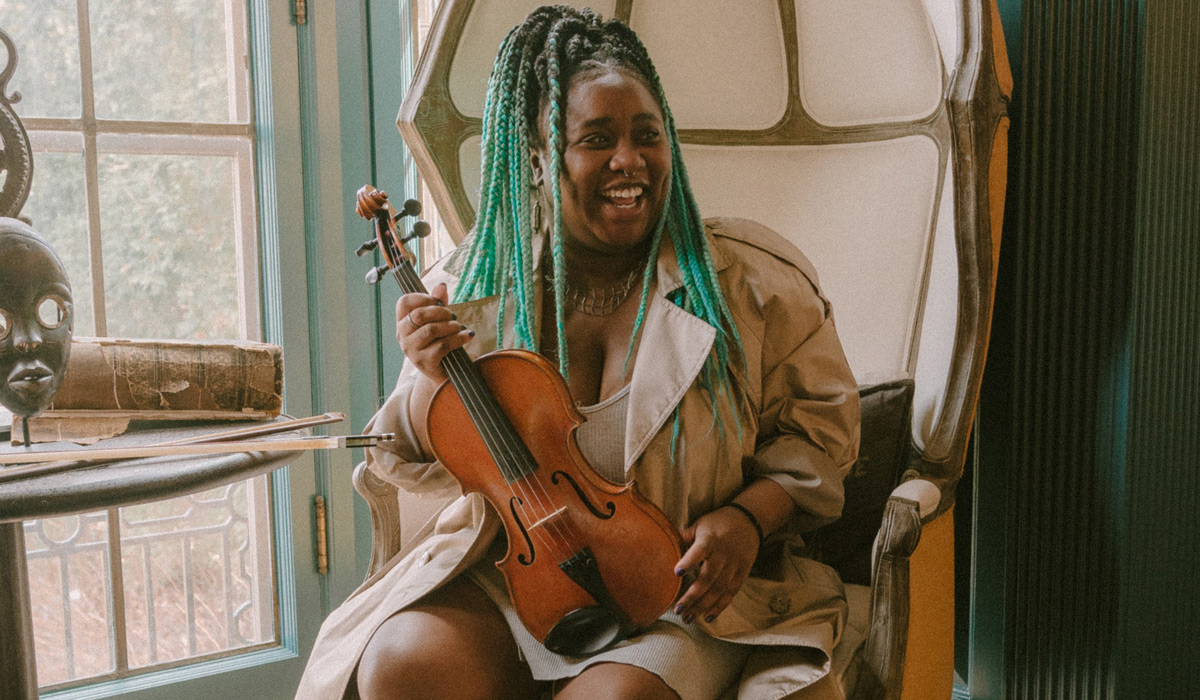After graduating from U-M, violinist Chauntee Ross, ’14, started a musical group called SistaStrings with her older sister, Monique. Since then, the duo has developed a devoted fan base in their hometown of Milwaukee by combining classical music with traditional African American forms, including gospel, jazz, and blues. They also frequently work with artists in a variety of other genres, from rock ‘n’ roll to rap.
Before the pandemic, Ross taught students at the Milwaukee Youth Symphony Orchestra and the Wisconsin Conservatory of Music. Since COVID-19, she and her sister have released a new album with well-known Milwaukee folk artist Peter Mulvey. On Oct. 9, Folk Radio UK premiered a video of the three artists performing one of their new songs in January 2020.
Ross traces her ability to bring people from different backgrounds together and connect with her audiences emotionally to her time at U-M. She recently shared some of those experiences with Michigan Alumnus.
Get out and explore. While at U-M, Ross realized that spending all her time in the music school on North Campus was limiting her ability to explore different types of sound. “It was better for my music for me to hang out with art students and spend time on different parts of campus with some of the vocalists or musical theater folks,” she says, adding it exposed her to different genres she then decided to carry forward in her music. It also helped get her out of the “bubble of my fellow string players.”
Feel the passion of your major. Ross believes all the skills and techniques she learned at U-M helped her become a more articulate artist. “I can play an entire tune with no words, but the audience will know what I’m feeling, even if they are feeling something different,” she says. For Ross, the point of music is to feel something and bridge gaps. “It’s why I want to play.”
Find a role model and be one. Attending the symphony growing up in Milwaukee, Ross could not help but notice a lack of diversity among the performers. “Everyone was white or Asian,” she recalls. When she later saw Laura Synder, a Black woman in the bass section of the symphony, she found the inspiration she needed. “It made me think, ‘I can do that, too!’ But I also thought, ‘Not only can I do that, I can do that and make it my own.'” Knowing how the symphony fueled her own music education, she now tries to share that same appreciation and love of music to the students she teaches. She also tries to be a mentor. “It’s just such a gift for me seeing people of color playing string instruments,” she says, adding that now, after being around so many young women of color, she feels “compelled to make music that truly brings out the best in whoever comes into contact with it. Being a role model gave my musical voice direction.”
Don’t be afraid to take a step back. Her final year at U-M, Ross took fewer classes, feeling she had overscheduled herself during previous semesters. She also spent less time socializing. “With the extra time, I went to shows or stayed in my apartment. I listened to all types of music and jammed out on my violin,” she remembers. The upshot was discovering all sorts of “folks making genre-bending music,” including the hip-hop duo Black Violin. “It was a tough year, but I just had to take the time to think. I knew I loved the violin and that I loved playing music, all kinds of music. But I wondered, ‘How can I make a sustainable career out of this now that I’ve spent five years in school doing this?'” Dreading leaving the University and unsure of what to do in the real world, she says she “just kind of let the music tell me.”
Find a professor who motivates you. U-M violin professor Aaron Berofsky taught Ross in a different way than her earlier teachers. Before studying with him, she had found it difficult at times to learn the technical details, particularly if she felt bored. “He had such a way of being able to reach me. I thought, ‘I just have to keep studying with this guy.'”





